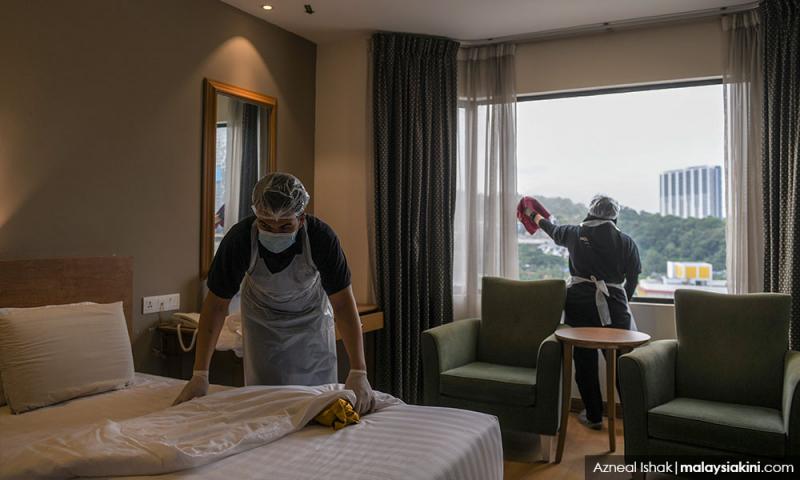LETTER | Restore justice to hotel and restaurant workers
LETTER | Tommy Thomas’ memoir, My Story: Justice in the Wilderness, has drawn plaudits and controversy in equal measure. He came across as being candid and erudite, and one can easily decipher why many of those who walk the corridors of power would feel uneasy and are reacting the way they are.
Former prime ministers, Dr Mahathir Mohamad and Najib Abdul Razak, now arch adversaries, have come together to express ire on the account of the writer on the role of another former prime minister, Abdul Razak, in the May 1969 racial riots.
I write this though to highlight something which would ordinarily not catch much attention, given the more widely known issues covered elsewhere in the book.
Thomas recounted the role that he played in representing the National Union of Hotel, Bar and Restaurant Workers (NUHBRW) at the Privy Council in the UK, on the issue concerning whether the service charged earned by workers in the hotel, bar and restaurant industry should have attracted Employees’ Provident Fund (EPF) contributions by the employer.
There are two components of wages in the hotel, bar and restaurant industry for workers who are considered as non-management – a basic wage and the service charge.
The service charge is a percentage of the overall amount of a bill paid by customers, in lieu of tips, which is in turn distributed to workers through a points system.
Thomas mentioned two former leaders of the NUHBRW, Lim Fun Saw and John Angelus, the latter being my late uncle, who fought very hard and valiantly to ensure that justice was served for workers of the industry.
Despite succeeding at the Privy Council, where it was held that employers should be contributing the statutory amount as EPF contributions on the service charge earned by workers, the then BN government amended the EPF Act retroactively.
This had the effect of denying the workers in the industry what was legitimately their dues. The BN government evidently bowed to the lobby of the big businesses, which was at the expense of the low-wage workers of the industry.
Efforts made by the NUHBRW and the Malaysian Trades Union Congress (MTUC) since then to restore to the workers in the industry what was rightfully theirs were not successful.
As time went on, many hotels sought to usurp into the service charge earnings of workers, and the NUHBRW was often involved in disputes of such a nature.
A common thread that ran through Thomas’ memoir was the unholy alliance between businessmen and politicians, who whilst enriching them and keeping themselves in power, had an adverse impact on the rakyat and the many governing and social institutions in the country.
The workers in the hotel, bar and restaurant industry fall within the category of people that directly bore the effects of such misgovernance.
Such was the impact of the whole issue concerning the service charge on Thomas that he stated that he still recalls with sadness and thinks of Angelus, the HUHBRW and what he described as the “wretched parliamentary intervention” when he pays service charge to any establishment.
The Covid-19 pandemic has impacted people and businesses, and the hotel industry has been one of the most badly impacted.
Things will recover though and in the near future, the matter of restoring justice to the workers in the industry that had been long denied should be on the agenda of Parliament.
Efforts must be made to pressure parliamentarians into seeing the need to right the wrong, and redress the imbalance in the hotel industry in Malaysia.
The views expressed here are those of the author/contributor and do not necessarily represent the views of Malaysiakini.
RM12.50 / month
- Unlimited access to award-winning journalism
- Comment and share your opinions on all our articles
- Gift interesting stories to your friends
- Tax deductable
